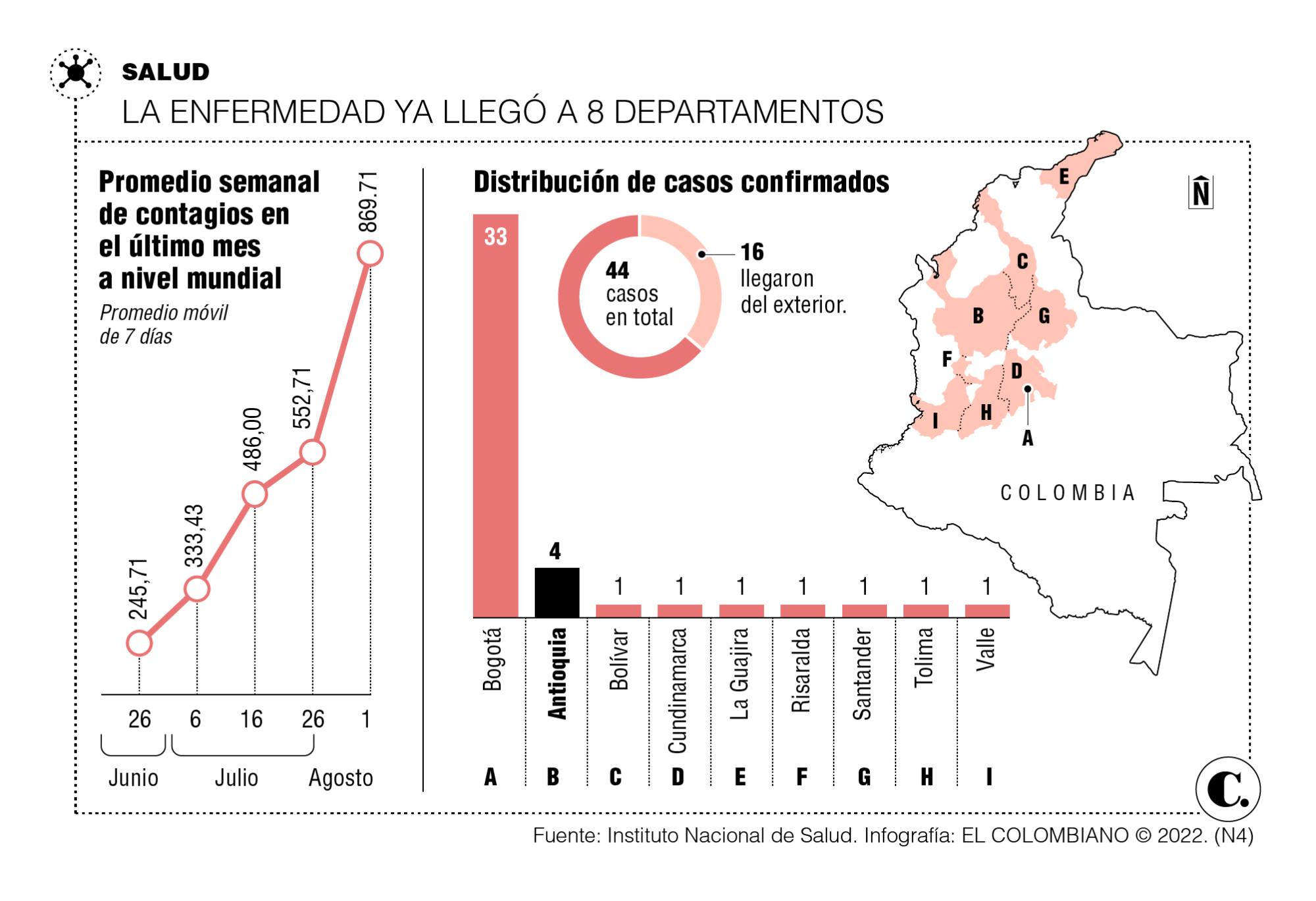In less than 24 hours, Colombia doubled its number of registered cases of monkeypox. Since the first contagion, reported just a month and a half ago, the country has completed 44 patients in 8 departments.
According to the records of the National Institute of Health, the reports of the official database went from being 22 until Thursday, to being 44 just one day later, this Friday.
Although this does not translate per se into an unbridled increase in the speed of contagion, the authorities are already taking measures to prepare the country for a possible community transmission, which would mean a greater possibility of getting it in crowded environments.

As part of these measures, the INS announced that the country already has 28 laboratories – which are part of the same network with which Covid-19 is diagnosed – that are trained to analyze monkeypox tests.
In this way, the diagnoses will begin to be carried out by the departmental laboratories and in the event that the territories do not have the capacity, the collaborating public health laboratory that corresponds to scientific research institutions will do so.
Of the total laboratories trained, 50% are from Departmental Public Health Laboratories and another 50% correspond to university laboratories.
Even so, it is likely that the country will increase its cases and require more diagnostic aids. According to the director of the Institute, Martha Ospina, her entity has already begun to train the staff of all the laboratories in the nation.
Meanwhile, the world is watching with concern the outbreaks in several of the world’s major cities. Data from the World Health Organization, with a cut to this Friday, indicate that there are already 26,017 infections in the world and nine confirmed deaths as a direct consequence of the virus.
In fact, the United States declared a health emergency throughout the country after reporting record figures of more than 6,500 infected. This measure helps the country allocate more resources to care for the disease and the application of vaccines.
For now, Colombia has remained in an “intensified containment and surveillance phase” that implies that the EPS must be attentive to each of the cases, carry out epidemiological monitoring and order care routes for diagnosed patients.
The wake up call
Although no restrictions have been decreed to prevent further contagion, the Ministry of Health and the WHO have insisted on maintaining personal biosecurity with simple actions.
If a person has symptoms such as fever and bumps on the skin, it is best to isolate themselves and cover the wounds with clothing, socks and gloves. In case of being in contact with other people, “it is important to wear a mask and avoid being in contact with the same surfaces”, as the WHO has said.
THE COLOMBIAN summed up five recommendations from the authorities to have clear information about what to do, and what not to do, to protect yourself from smallpox.
1. Most infections are caused by direct contact with the rash of an infected person.
2. Saliba particles could also carry the virus. Wearing a mask is key.
3. There is no evidence yet that it is transmitted through sexual intercourse. They recommend not doing it.
4. In case of contagion, it is key to isolate yourself and cover skin wounds with clothing, stockings and gloves.
5. Constant hand washing is recommended and avoid sharing utensils with an infected person.
